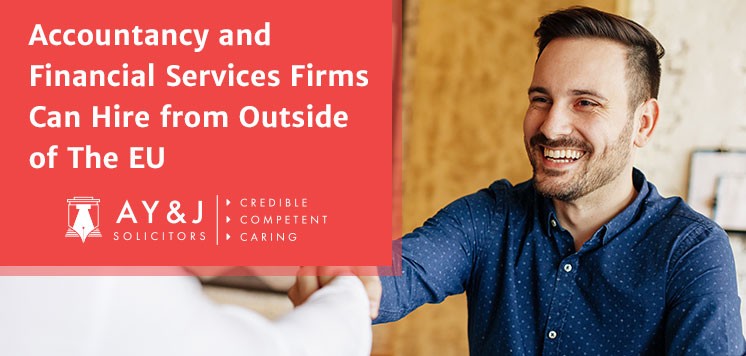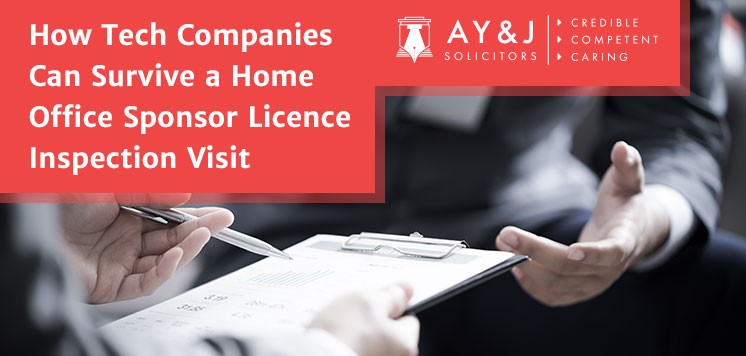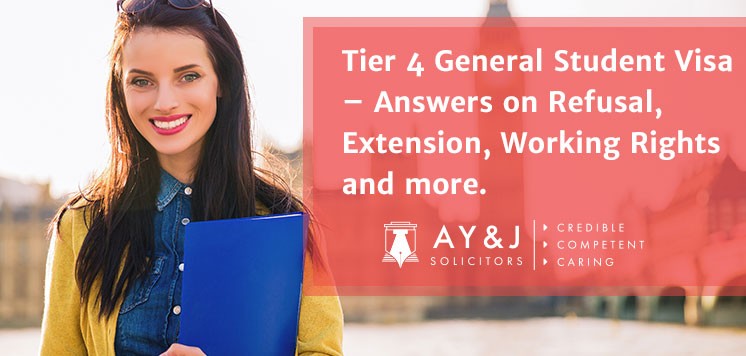Disclaimer: The information in this blog is accurate as of its publication date. Any updates after that date are not reflected here.
According to government figures, the UK financial industry employs over a million people, of which approximately 100,000 are from outside of the EU (60,000 are from the EU), and as a sector has a high proportion of highly-skilled staff. But what will happen after Brex it? Will the balance shift even more towards the recruitment of non-EEA expertise? To some extent, this has already happened. In a possible sign of things to come, the Office for National Statistics showed in February 2018 non-EEA net migration to the UK has overtaken migration from the EU;non-EEA inflow equated to 285,000 last year, compared to 220,000 from the EEA.
Table of Contents
Are Finance and Fintech Companies Worried About Recruitment of Skilled Labour?
On 4th April 2018, Mike Laven, chief executive of Currencycloud was interviewed by the Financial Times on his thoughts on the ability of Fintech companies to access sufficient expertise now and in the future. In his view, there has been a reduction in the influx of talent into the UK, especially, given the sector in which his business operates, computer engineering skills. This may mean, according to Mr Laven, an increasing number of jobs may have to be based on the Continent. On a positive note, he has not yet seen a large outflow of talent; but given we are still nearly ten months away from exiting the EU at the earliest, this may still eventuate if the UK continues to be perceived as unwelcoming to overseas talent.
So concerned is the finance industry, at the end of 2017, one of Britain’s biggest financial lobby groups, UK Finance, was actively pushing to ensure the free movement of financial workers specifically, between the EU and the UK after Brexit, remains. While we don’t know the final shape of how the UK and EU will cooperate after March 2019, all finance businesses in the UK who are reliant on workers from outside of the country should be putting in place plans to cater for any scenario, including maintaining the ability to sponsor workers from outside of the EEA.
How can financial services firms protect their ability to recruit from outside of the EU?
Many financial services firms already have Sponsor Licenses to allow them to hire staff from outside of the EEA, under the Tier 2 General and ICT Visa schemes. The Tier 2 Sponsor Licence system was introduced by the UK Visa and Immigration (UKVI) in 2008 and allows licensed firms to issue Certificates of Sponsorship (CoS) to non-EEA recruits. But to retain this privilege, sponsoring organisations must continue to ensure they remain compliant with strict Home Office duties and responsibilities. Failure to do so can result in your license being downgraded, suspended, or revoked. Unfortunately, the Home Office carries out regular announced and unannounced audits of Sponsor License holders, and will not refrain from removing your license for any breach; which might mean:
- You cannot issue any new Certificates of Sponsorship to bring in new resources from outside the EEA.
- A B-rated sponsor is not able to add branches or new tiers to its licence.
- You may receive more regular and extensive audit checks from the Home Office.
- You may be unable to certify maintenance requirements for prospective recruits.
- Leave (Visa) Curtailment of your current non-EU skilled workers.
Client says, “Excellent service
[perfectpullquote align=”left” bordertop=”false” cite=”” link=”” color=”” class=”” size=””]Thanks for A Y & J Solicitors’ help and we strongly recommend them to someone who has the related issues.[/perfectpullquote]When our company’s sponsorship license been revoked by home office due to the misunderstanding during the compliance visit and flawed judgement, we contacted A Y & J Solicitors to ask help.…..Thanks for A Y & J Solicitors’ help and we strongly recommend them to someone who has the related issues.”
Preparation is the key to compliance inspection success
The more you can do to ensure your organisation is prepared, and therefore comfortably pass a compliance audit, the more you are protecting your ability to hire non-EEA personnel. Ensuring ongoing compliance is straightforward if you understand what the Home Office is looking for.
The following are some of the most important considerations when preparing for an audit:
- Keep a copy of your original application for a sponsor license, and ensure that you keep evidence of any documents to support your answers
- Keep your Sponsorship Management System (SMS) fully up to date. This entails ensuring your Level 1 user understands their role, there is a backup if they are absent, any changes are immediately passed to the Level 1 user, and changes are made preferably on the same day. Remember, an immigration lawyer can take on this role for you, thereby freeing up your team to focus on the day to day operation of the business.
- Compliance officers may visit any site at which your sponsored workforce is based. As such you should prepare all sites with sponsored staff for the possibility of a visit to the Home Office.
- Ensure the Home Office is notified of any Key Personnel role changes – including the Authorizing Officer, Key Contact, and Level 1 User. These can be undertaken by one person and can be outsourced to an immigration lawyer.
- If you have undertaken Resident Labour Market Tests, which have resulted in you sponsoring an overseas member of staff, ensure you keep all copies of CV of domestic applicants who were not suitable. You may be asked to show these to a compliance officer. Keeping copies of interview notes is also recommended.
- Ensure any information and paperwork you hold as a sponsor license holder is accurate.
- Ensure everyone involved in upholding the duties of a sponsor license holder understands their role, and there is a clearly documented process for managing these duties.
- Implement an internal reporting system so you can keep track of the working location of your sponsored employees at all times.
In Conclusion
If you have any concerns regarding your firm’s current level of compliance with your Sponsor Licence obligations, consider engaging the services of an experienced immigration lawyer, who can assess your current readiness, recommend changes to fill in any gaps in compliance, take over the updating of your Sponsorship Management System (SMS), and undertake periodic mock-audits to simulate a live visit from a Home Office compliance officer. Most importantly, by calling in the experts, you can relax in the knowledge that there will be no interruption in your ability to recruit talent from outside of the EEA.
Client says, “Outstanding Service with no parallels
We had pleasure and privilege of having Yash Dubal, Senior Immigration Lawyer of A Y & J at our office to discuss Sponsorship duties and have an open forum on multiple of questions we had on UKVI regulations on sponsoring and employing skilled migrant workers. We learnt a lot of critical aspects of Sponsorship responsibilities. We were able to clarify a long list of doubts/questions we had on regulations and sponsorship duties.
[perfectpullquote align=”left” bordertop=”false” cite=”” link=”” color=”” class=”” size=””]Yash is very professional, and he attended to every question we had regarding UKVI regulation with great detail and care.[/perfectpullquote]
Yash is very professional, and he attended to every question we had regarding UKVI regulation with great detail and care. His attention to detail, focus, in-depth understanding of regulations and implications are without any parallels available in this industry. We feel privileged to have spent the day with him at our office and are looking forward to having future engagement with him. We recommend A Y & J’s service to anyone who wishes to sponsor skilled migrant workers in the UK.”
A Y & J Solicitors are specialists in immigration law based in central London. If you would like to have more information, please contact us at contact@ayjsolicitors.com or call +44 20 7404 7933.
Disclaimer: No material/information provided on this website should be construed as legal advice. Readers should seek an appropriate professional advice for their immigration matters.









